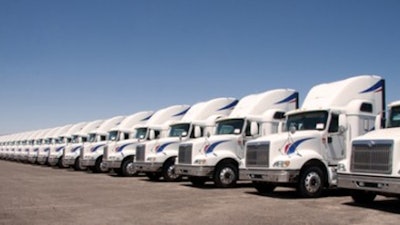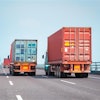
It is not just legislation that is driving change on carbon emissions within the logistics sector, but client pressure and internal initiatives are also increasingly significant factors, according to a new survey from the British International Freight Association (BIFA), conducted in association with Pledge.
“The conclusion of the survey is that there has been growing awareness of environmental issues amongst the BIFA membership and, to some extent, a growing awareness of the need to measure carbon emissions and provide that information to clients,” says BIFA director general, Steve Parker. “It will be particularly challenging for SMEs to determine how they will use this data and what they can actually do to reduce their carbon emissions – the general consensus is that significant changes will be required. Although what these will be are not clear at the moment.”
From BIFA:
- There is growing awareness of measuring carbon emissions from the shipment of freight amongst BIFA members. The results showed that for 69.05% of the respondents, calculating emissions was playing some sort of role within their day-to-day activities, whilst for 15.48% it was deeply rooted in their business activities.
- The perceived wisdom has always been that regulation would drive change and for 15.48% this was still the case. However, for 28.57% of members, client pressure is the main contributor, whilst internal initiatives accounted for 30.95%.
- The use of IT systems to facilitate the integration of transport management with carbon calculation systems is key to the successful recording and reporting of carbon emissions.
- Whilst 22.62% of respondents had an annual budget of less than a £1,000 to spend on carbon emissions calculation, a much healthier 30.95% had between £1,000 and £9,000 to spend. The financial budgets of a further 14.29% of Members exceeded £20,000.




![Pros To Know 2026 [color]](https://img.sdcexec.com/mindful/acbm/workspaces/default/uploads/2025/08/prostoknow-2026-color.mduFvhpgMk.png?auto=format%2Ccompress&bg=fff&fill-color=fff&fit=fill&h=100&q=70&w=100)







![Pros To Know 2026 [color]](https://img.sdcexec.com/mindful/acbm/workspaces/default/uploads/2025/08/prostoknow-2026-color.mduFvhpgMk.png?ar=16%3A9&auto=format%2Ccompress&bg=fff&fill-color=fff&fit=fill&h=135&q=70&w=240)




